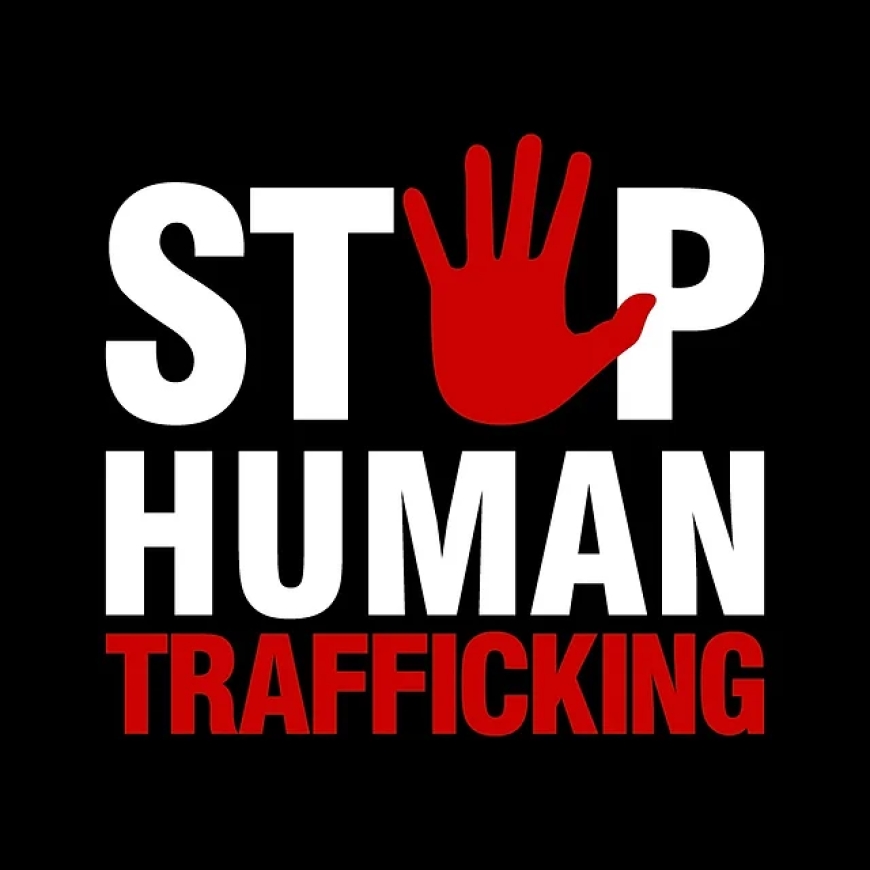UK Vows Crackdown on People-Smuggling Gangs as Courts Jail Human Traffickers

The UK government has pledged to intensify its efforts to dismantle human-smuggling networks following a series of tragic migrant incidents, including a deadly boat disaster in the English Channel. UK Interior Minister Yvette Cooper, speaking at a high-level crime summit on Friday, vowed that authorities "will not rest" until the smuggling gangs responsible for these deadly operations are brought to justice.
The crackdown on people-smuggling comes amid the sentencing of Anas Al-Mustafa, a 43-year-old Syrian man, who was convicted in August of facilitating illegal migration by trafficking seven people in a specially adapted van. On Friday, Al-Mustafa was sentenced to 10 years in prison for his role in the operation, in which migrants were found crammed into a concealed compartment, deprived of oxygen, and desperately screaming for help.
The harrowing case, which unfolded when ferry crew members heard cries coming from within Al-Mustafa's van during a crossing between Dieppe, France, and Newhaven, UK, highlights the brutal conditions faced by those attempting to reach the UK. Two of the trafficked migrants were unconscious by the time they were rescued, and others suffered severe medical complications, including a stroke and acute kidney injury.
Rising Death Toll and Criminal Networks
The UK’s latest move to tighten its grip on smuggling operations follows a series of tragic events in the Channel, where at least 12 migrants perished earlier this week when their small boat was destroyed off the northern French coast. Cooper emphasized the cruelty at the heart of these operations, stating, "Exploiting vulnerable people is at the heart of the business model of these despicable criminal smuggling gangs. We will not rest until these networks have been dismantled."
Although much attention has been paid to small boat crossings of the Channel, criminal organizations continue to use more traditional smuggling routes. Al-Mustafa’s case is a stark reminder that smuggling operations extend beyond the small boats to include hidden compartments in vehicles and other risky methods.
Serious Health Risks for Migrants
In the case involving Al-Mustafa, the migrants—six men and one woman—were discovered in a concealed space no wider than "the width of a human chest." Overheated and deprived of water, some of the migrants were on the brink of death when rescued by the ferry’s crew, who used an axe to break down the van’s fake partition. The migrants faced severe dehydration, with one suffering a heart attack and another falling into a coma. The court heard that none of them had been given food or water during the journey.
Judge Christine Laing, who presided over the case, condemned Al-Mustafa for recklessly endangering the lives of vulnerable people for financial gain. "Desperate people are prepared to risk their lives to come into the UK, often with tragic consequences," she said. "They are exploited by those who profit from this trade and pay little attention to their safety."
Government’s Response and Increased Surveillance
Border Security and Asylum Minister Angela Eagle echoed Cooper’s concerns, describing the actions of people smugglers as "evil" and underscoring the need to increase law enforcement pressure on criminal networks. "This criminal put seven people’s lives at risk for cash. It is a miracle they are still alive after the conditions they were put in," Eagle said in a statement.
Authorities have already ramped up efforts to prevent illegal crossings, with UK Border Force officers intercepting traffickers attempting to smuggle migrants through various routes. In a separate case, Joshua Bynoe, a UK national, was sentenced to three years in prison after attempting to smuggle five Afghan migrants, including a five-year-old child, into the UK by hiding them in a motorhome.
Broader Policy Implications
The UK’s migrant crisis has been a central issue in the political landscape, particularly during the general election in July, which saw Prime Minister Keir Starmer’s Labour party come to power. Starmer quickly abolished the controversial migrant deportation plan to Rwanda, which had been championed by the previous Conservative government as a deterrent to illegal crossings. The costly program, which saw only four migrants voluntarily relocate to Rwanda despite a £700 million budget, was dismissed by Starmer as an "expensive gimmick."
The new administration has focused on dismantling smuggling operations while addressing the root causes of illegal migration. However, with more than 22,000 migrants detected entering the UK this year alone, and larger boats being used to cross the busy shipping lanes of the Channel, the crisis shows no signs of abating.
As the UK intensifies its fight against smuggling gangs, authorities face the challenge of balancing enforcement with humanitarian obligations, ensuring that those fleeing conflict and poverty are treated with dignity while targeting the criminal networks that exploit them.













































